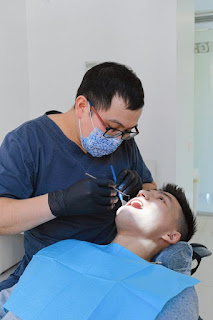How to maintain your teeth and gums
Tooth decay or gum problems will add more pain in your mouth, problems if not treated. These issues can lead to speech problems, malnutrition, and other health challenges and chain off your work, school, or personal life.
People can save themselves from these problems by taking proper dental care, both at home and in the dentist’s office. The following practices are best and will keep teeth and gums healthy.
Regular Brushing
Most people know that brushing their teeth twice a day is the ideal and important practice. This will remove the unwanted plaque and bacteria from your mouth and keep your teeth clean. However, brushing is only effective if you use the correct technique.
People should brush their teeth in small circular motions and clean their toothbrushes from the front side, backside, and top of every tooth. This process will hardly take between 3 and 4 minutes. People should avoid washing their brushes in back-and-forth motions.
Brushing too hard or using a hard-bristled toothbrush can damage tooth enamel and the gums. This may include tooth sensitivity, permanent damage to the protective enamel on the teeth, and gum erosion.
Floss once a day
Flossing will remove the bacteria and plaque from the teeth, which your toothbrush cannot reach. It can also help remove the bad breath and debris and the trapped food between the teeth.
Most dentists will recommend you push the floss gently, pushing the floss down to the gum line before hugging your side tooth with up-and-down moments. It is important to ignore snapping the floss up and down between the teeth, which is responsible for pain and can not remove plaque as effectively.
Visit a dentist regularly
Experts have recommended that people visit a dentist for a checkup every 6 months. A hygienist will remove the plaque during a regular dental checkup and clean your teeth. The dentist will look at the various signs of cavities, gum diseases, mouth cancer, and other oral disorders. They also use dental X-rays to check for cavities. The latest study showed that children and teenagers should see a dentist every 6 months to stop cavities. However, adults who practice regular dental hygiene have a low risk of oral health problems. People can openly consult with their dentist about a chipped tooth, braces nz, cavities, tooth extraction, wisdom teeth, etc. The dental checkup depends on a person’s health history, age, and overall dental health.
Do not smoke
Smoking is very harmful to our immune system, creating difficulty for the body, tissues, and mouth. People who smoke will experience slow healing after dental consultations. Smoking is mainly responsible for the bad appearance of your mouth, Bad oral breath, and yellow teeth.
Use a mouthwash
Some studies have shown that certain mouthwashes are good for oral health. For example, one review found that mouthwash contains chlorhexidine, an antibacterial ingredient that controls plaque and bad breath. Mouthwashes with some essential oils are more effective.
People may wish to ask their dentist which is the best mouthwash for their individual needs. Mouthwash cannot replace brushing and flossing, but it is similar to these practices. There are many options for an ideal face wash that can help with bad breath and dental problems.
For more information or services you can visit our website. Our professional experts will give you the right solution for your braces nz, and Chipped Tooth.
Source URL: http://gentledental.co.nz/
.jpg)

Comments
Post a Comment